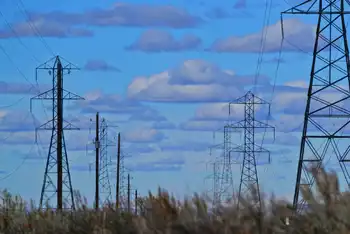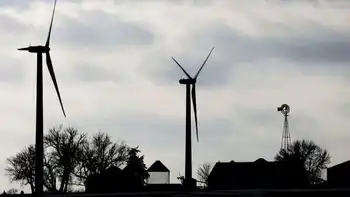Ontario Hydro Crisis highlights soaring electricity rates, costly subsidies, nuclear refurbishments, and stalled renewables in Ontario. Policy missteps, weak planning, and rising natural gas emissions burden ratepayers while energy efficiency and storage remain underused.
Key Points
High power costs and subsidies from policy errors, nuclear refurbishments, stalled efficiency and renewables in Ontario.
✅ $5.6B yearly subsidy masks electricity rates and deficits
✅ Nuclear refurbishments embed rising costs for decades
✅ Efficiency, storage, and DERs stalled amid weak planning
By Mark Winfield
While the troubled Site C and Muskrat Falls hydroelectric dam projects in B.C. and Newfoundland and Labrador have drawn a great deal of national attention over the past few months, Ontario has quietly been having a hydro crisis of its own.
One of the central promises in the 2018 platform of the Ontario Progressive Conservative party was to “clean up the hydro mess,” and then-PC leader Doug Ford vowed to fire Hydro One's leadership as part of that effort. There certainly is a mess, with the costs of subsidies taken from general provincial revenues to artificially lower hydro rates nearing $7 billion annually. That is a level approaching the province’s total pre-COVID-19 annual deficit. After only two years, that will also exceed total expected cost overruns of the Site C and Muskrat Falls projects, currently estimated at $12 billion ($6 billion each).
There is no doubt that Doug Ford’s government inherited a significant mess around the province’s electricity system from the previous Liberal governments of former premiers Dalton McGuinty and Kathleen Wynne. But the Ford government has also demonstrated a remarkable capacity for undoing the things its predecessors had managed to get right while doubling down on their mistakes.
The Liberals did have some significant achievements. Most notably: coal-fired electricity generation, which constituted 25 per cent of the province’s electricity supply in the early 2000s, was phased out in 2014. The phaseout dramatically improved air quality in the province. There was also a significant growth in renewable energy production. From virtually zero in 2003, the province installed 4,500 MW of wind-powered generation, and 450 MW of solar photovoltaic by 2018, a total capacity more than double that of the Sir Adam Beck Generating Stations at Niagara Falls.
At the same time, public concerns over rising hydro rates flowing from a major reconstruction of the province’s electricity system from 2003 onwards became a central political issue in the province. But rather than reconsider the role of the key drivers of the continuing rate increases – namely the massively expensive and risky refurbishments of the Darlington and Bruce nuclear facilities, the Liberals adopted a financially ruinous Fair Hydro Plan. The central feature of the 2017 plan was a short-term 25 per cent reduction in hydro rates, financed by removing the provincial portion of the HST from hydro bills, and by extending the amortization period for capital projects within the system. The total cost of the plan in terms of lost revenues and financing costs has been estimated in excess of $40 billion over 29 years, with the burden largely falling on future ratepayers and taxpayers.
Decision-making around the electricity system became deeply politicized, and a secret cabinet forecast of soaring prices intensified public debate across Ontario. Legislation adopted by the Wynne government in 2016 eliminated the requirement for the development of system plans to be subject to any form of meaningful regulatory oversight or review. Instead, the system was guided through directives from the provincial cabinet. Major investments like the Darlington and Bruce refurbishments proceeded without meaningful, public, external reviews of their feasibility, costs or alternatives.
The Ford government proceeded to add more layers to these troubles. The province’s relatively comprehensive framework for energy efficiency was effectively dismantled in March, 2019, with little meaningful replacement. That was despite strong evidence that energy efficiency offered the most cost-effective strategy for reducing greenhouse gas emissions and electricity costs.
The Ford government basically retained the Fair Hydro Plan and promised further rate reductions, later tabling legislation to lower electricity rates as well. To its credit, the government did take steps to clarify real costs of the plan. Last year, these were revealed to amount to a de facto $5.6 billion-per-year subsidy coming from general revenues, and rising. That constituted the major portion of the province’s $7.4 billion pre-COVID-19 deficit. The financial hole was deepened further through November’s financial statement, with the addition of a further $1.3 billion subsidy to commercial and industrial consumers. The numbers can only get worse as the costs of the Darlington and Bruce refurbishments become embedded more fully into electricity rates.
The government also quietly dispensed with the last public vestige of an energy planning framework, relieving itself of the requirement to produce a Long-Term Energy Plan every three years. The next plan would normally have been due next month, in February.
Even the gains from the 2014 phaseout of coal-fired electricity are at risk. Major increases are projected in emissions of greenhouse gases, smog-causing nitrogen oxides and particulate matter from natural gas-fired power plants as the plants are run to cover electricity needs during the Bruce and Darlington refurbishments over the next decade. These developments could erode as much as 40 per cent of the improvements in air quality and greenhouse gas emission gained through the coal phaseout.
The province’s activities around renewable energy, energy storage and distributed energy resources are at a standstill, with exception of a few experimental “sandbox” projects, while other jurisdictions face profound electricity-sector change and adapt. Globally, these technologies are seen as the leading edge of energy-system development and decarbonization. Ontario seems to have chosen to make itself an energy innovation wasteland instead.
The overall result is a system with little or no space for innovation that is embedding ever-higher costs while trying to disguise those costs at enormous expense to the provincial treasury and still failing to provide effective relief to low-income electricity consumers.
The decline in electricity demand associated with the COVID-19 pandemic, along with the introduction of a temporary recovery rate for electricity, gives the province an opportunity to step back and consider its next steps with the electricity system. A phaseout of the Fair Hydro Plan electricity-rate reduction and its replacement with a more cost-effective strategy of targeted relief aimed at those most heavily burdened by rising hydro rates, particularly rural and low-income consumers, as reconnection efforts for nonpayment have underscored the hardship faced by many households, would be a good place to start.
Next, the province needs to conduct a comprehensive, public review of electricity options available to it, including additional renewables – the costs of which have fallen dramatically over the past decade – distributed energy resources, hydro imports from Quebec and energy efficiency before proceeding with further nuclear refurbishments.
In the longer term, a transparent, evidence-based process for electricity system planning needs to be established – one that is subject to substantive public and regulatory oversight and review. Finally, the province needs to establish a new organization to be called Energy Efficiency Ontario to revive its efforts around energy efficiency, developing a comprehensive energy-efficiency strategy for the province, covering electricity and natural gas use, and addressing the needs of marginalized communities.
Without these kinds of steps, the province seems destined to continue to lurch from contradictory decision after contradictory decision as the economic and environmental costs of the system’s existing trajectory continue to rise.
Mark Winfield is a professor of environmental studies at York University and co-chair of the university’s Sustainable Energy Initiative.
Related News












